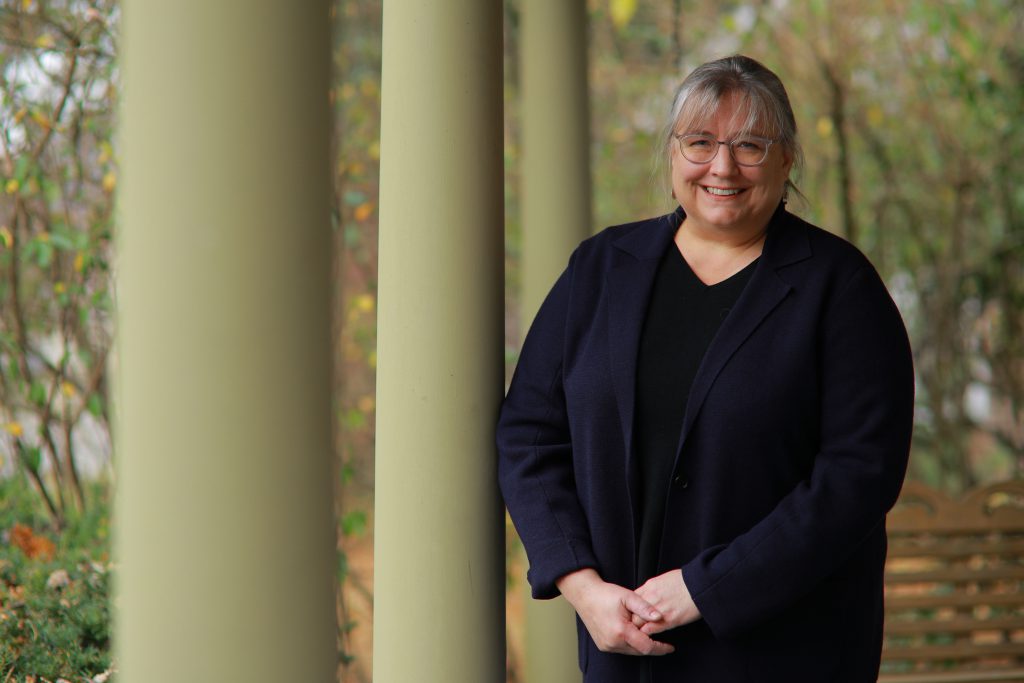The coronavirus pandemic has changed how teachers teach — continuously pivoting, coming up with creative alternatives, rising to the challenge of their careers.
“Every teacher from preschool through high school has been scrambling constantly, especially science teachers,” said Dr. Susanna Hapgood, associate professor in the Department of Teacher Education in The University of Toledo Judith Herb College of Education.
“Nobody has time yet to step back and collectively figure out what really worked well and what didn’t, and for which learners and in what kind of situation. These teachers are under incredibly tough constraints and demands.”
Before COVID-19 forced classes to be taught remotely, Hapgood’s focus was on introducing more science in early childhood classrooms — preschoolers through third graders.
“The sorry state of affairs is that science is not taught very much in the early grades,” Hapgood said. “The emphasis is on literacy and math because that is what is assessed. But our research shows that if early childhood classrooms spend more time on science and teachers are equipped to do the discourse around examining scientific phenomena, it impacts literacy and math scores on standardized tests positively.”

Dr. Susanna Hapgood, associate professor in the Department of Teacher Education in The University of Toledo Judith Herb College of Education.
“When we give children meaningful reasons to use language and do computations or think about quantities of things and how to measure — all those things related to computational thinking and understanding mathematics in real context, not in isolated practice skills — they learn those math and literacy skills while spending time on science.”
Hapgood said families learning together is critical to enhancing science education for children.
The UToledo Judith Herb College of Education awarded Hapgood a three-year appointment as the Judith Daso Herb Endowed Chair for her project titled “STEAM Power Generation: Families Learning Together.”
STEAM stands for science, technology, engineering, arts and math.
Funds associated with the position will support projects focused on better understanding and supporting learning within family contexts, which Hapgood said often can facilitate home-school connections. It also can help build community-wide connections with out-of-school “informal” educational venues such as museums, libraries, zoos and parks.
“Part of what I’m doing is creating a web portal to help parents marinate their children’s curiosity about the world,” Hapgood said. “I want to give parents sentence-starters, talking tips and permission to not know all the answers.”
“I want them to say, ‘Let’s explore together, tell me what you’re finding out,’ rather than feeling they have to be in a position of knowing everything. You want to put your children in a position of being the ones who are driving the questioning and the inquiry, whether you’re looking at soil samples or evaporation or butterflies.”
This project stems from NURTURES, an innovative early childhood STEM education program led by UToledo faculty and researchers Drs. Charlene Czerniak, Scott Molitor, Joan Kaderavek and Hapgood that has shown success in classrooms and homes across the northwest Ohio and southeast Michigan region.
The U.S. Department of Defense recently awarded UToledo a three-year, $3 million grant to expand the program and offer NURTURES to military-connected families across the country with partners including Georgia State University and Washington School Research Associates.
NURTURES improves pre-K-through-third-grade STEM education through teacher professional development, family engagement and community outreach. These efforts to enhance teaching and learning early in a child’s life have resulted in greater student interest and achievement in STEM in the program’s nine years.
“I’ve been involved with NURTURES for the last eight years and we’ve learned that with really little kids, parents are in a great position to make connections to scientific phenomena and other experiences they’ve had,” Hapgood said. “My plan for Families Learning Together is to create a guide for parents and give them ideas for places they can go and, for example, do an observation of a habitat at the zoo, park or aquarium.”
As face masks, social distancing and remote learning remain the norm during the global health crisis, Hapgood said teachers are getting creative to conduct hands-on science experiments with items students can find around the house and hosting live observations of rainforests using online resources.
“When we get back to in-person school,” Hapgood said, “one thing I know for sure is everybody will have a new appreciation for what teachers are doing.”